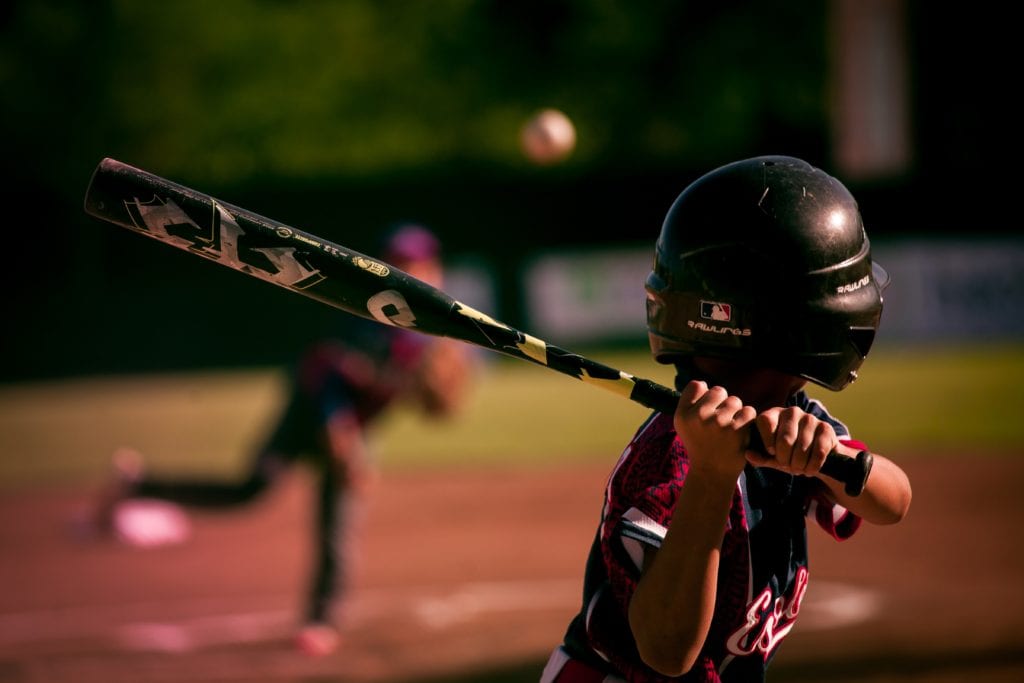
Who knew that my first childhood love, playing baseball, would help me live with Parkinson’s disease?
1980
Ken and I are teammates on our sixth grade baseball team and he is awful at baseball. Tall and skinny, he lacks muscular coordination. Walking on his tiptoes, he bounces along with the agility of a young colt learning to walk. Sometimes, like a colt, he appears on the verge of falling flat on his face.
Ken is friendly but also shy, and he never wants attention. Everyone on the team likes him and appreciates his steadfast efforts to improve and to contribute. In fact, he motivates the rest of us to work harder ourselves. In this way, he’s an unlikely leader.
Despite his efforts, Ken gets little playing time. If not for the league’s requirement that coaches play each kid at least two innings in every game, he would hardly ever get on the field. Batting presents the biggest challenge. He always strikes out. Always! Usually without making contact with any ball thrown to him. More times than not, a ball pitched to him reaches the catcher’s mitt before Ken swings his bat.
Striking Out
A predictable feeling of dread grabs me when I see Ken trot onto the field. I think my teammates and all of our parents feel this same dread. Ken must feel it, too. Practice after practice, game after game.
We say things like, “Keep your head up,” “You’ll get ‘em next time,” and “Good effort, Ken.” We all want so badly for him to succeed.
Ken’s frustration level wears on him; you can see it. More and more, he slams his bat to the ground when he strikes out, turning its end into the dirt like a corkscrew. Sometimes he kicks the dirt as he walks back to the dugout, his head held low and shaking firmly back and forth as if to say “No. No. No.”
It’s our next to the last game, and after striking out again and verbally bashing himself as he walks back to the dugout, he can no longer hold back his tears. Laying his bat down, he walks briskly to the far end of the bench, places his sweaty face in his dirty, slender, boyish hands, and weeps. Trying desperately not to cry, his body shakes noticeably.
All of us try not to stare, not knowing what else to do.
After a couple of minutes, Ken lifts his head, gives his now dirt-streaked face a long wipe with his forearm and the back of his hand, and trots out to his place in right field, where he completes the inning and finishes the game.
The Last at Bat
It’s now the following Saturday, the last game of the season, and Ken is inserted dutifully into the line-up in the eighth inning. It’s our team’s turn to bat and he’s second in the order. Our teammate Corey just got on base with a walk.
Ken approaches the batter’s box. That familiar feeling of dread grabs me as my thoughts return to the previous game.
On the very first pitch, Ken swings the bat and misses. The catcher’s leather mitt pops. The same thing happens with the second pitch. Two strikes.
On the third pitch, Ken swings the bat and makes contact with the ball, which bloops over the second baseman’s head and into right field!
With eyes a large as saucers, Ken takes off running toward first base on his tiptoes, his long arms pumping back and forth while his gangly body works to stay upright. He reaches first base and finally gets a hit.
The expression on his face tells the story, one that remains embossed in my memory. Several of us take a quick couple of steps out of the dugout, ready to swarm the field in celebration, before our coach stops us.
When two other teammates both get a hit and Ken crosses home plate to score, the entire team encircles him and we shout, “Ken! Ken! Ken! Ken!” He holds his arms high in the air and his head almost as high. We all have our arms around each other. A pervasive joy hovers over the red Georgia dirt for several minutes, and no one wants it to end.
I have a palpable sense of what I can only call divine compassion; and I am grateful.
2020
Forty years and Parkinson’s diagnosis later, my eyes still moisten when I think about Ken—about his struggle, his strength, his hit at the end of the season. I can still see him wipe away his tears, straighten his back, and exhale as, once again, he steps up to the plate, tightens his grip, and invites me to follow his lead.
____________
Photo by Eduardo Balderas on Unsplash
Allan Cole is a professor in The Steve Hicks School of Social Work at The University of Texas at Austin and, by courtesy, professor of psychiatry in the Dell Medical School. Diagnosed with Parkinson’s in 2016, at the age of 48, he serves on the Board of Directors at Power for Parkinson’s, a non-profit organization that provides free exercise, dance, and singing classes for people living with Parkinson’s disease in Central Texas, and globally via instructional videos. He also serves as a Community Advocate for ParkinsonsDisease.net, writing columns about living well with Parkinson’s. He is author or editor of 10 books on a range of topics related to bereavement, anxiety, and spirituality. His latest book, on counseling people with Parkinson’s disease, will be published by Oxford University Press in 2021. Follow him on Twitter @PDWise.
